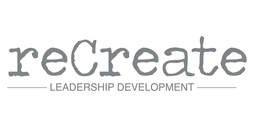 There is a paradox around vacations. We all know that it is important to get away from the office periodically. Time away from work gives you a chance to relax, to reduce stress, renew your ties with your family, and to get away from problems you have struggled with so that you can think about them differently on your return to the office. However, as a vacation approaches, we generally look at it with dread. There is too much work to be done! There are new projects starting and others that need to be completed. How could we possibly have selected this particular week to go away? It can get so bad that you might think twice before planning another trip. Why is it that a vacation seems like a great idea when we first plan it, but feels like more and more of a burden the closer it gets? It all comes down to distance. Over the past 15 years, quite a bit of research has focused on what Yaacov Trope and Nira Liberman call construal level theory. The idea is that the more distant some object or event is for you, the more abstractly you think about it. Distance can refer to physical distance, but it can also mean distance in other dimensions like time or social structure. So, an event that won’t happen for six months is distant, while an event that is happening later this week is near. Abstractness refers to the level of detail that is captured in your thoughts about the object or event. When a vacation is far off, you focus primarily on general characteristics, such as “This vacation will be so much fun,” “I can’t wait to sit on the beach and relax,” or “I love visiting new countries.” At a distance, most of your thoughts are focused on these desirable aspects of the trip. As the vacation gets closer, your thoughts become more specific. All of the details that are required for you to go on the trip come into view. You think about getting your passport renewed or reserving space on an excursion. You also start thinking about how to structure your work so that you can get away. You consider meetings you will miss, events that need to be rescheduled, and responsibilities that need to be shifted to someone else. When you contemplate the number of changes that have to made to accommodate your vacation, you begin to wonder why you ever agreed to take the trip at all. Because it really is important to get away, you should not add stress to your vacation by questioning your decision to go away. When you book your next trip, remind yourself of what you are going to feel like as the trip nears by imagining that you actually had to go on the trip next week. Look at your schedule and recognize that you will be busy no matter when you decide to go away. If it’s really a problem, start planning earlier – get your passport renewed well ahead of time, and book that excursion sooner too. Then, remember that all of the work you miss will be waiting for you when you get back. If it is important, and you are the person who has to do it, it will be there on your return. Finally, look back at your life over the last five years. How many specific weeks of your life can you remember? Chances are, most of the things you remember involve changes to your routine rather than business as usual. Your trips, family events, and new experiences are the ones that stick out in memory. Don’t let the mad rush the last week before you go away dissuade you from taking more trips in the future. Art Markman, PhD, is the Annabel Irion Worsham Centennial Professor of Psychology and Marketing at the University of Texas at Austin and founding director of the program in the Human Dimensions of Organizations. He has written over 150 scholarly papers on topics including reasoning, decision making, and motivation. He is the author of several books including Smart Thinking, Smart Change, and Habits of Leadership. Click here for Harvard Business Review site
0 Comments
Leave a Reply. |
Team reCreate
Strengths-based Development (SBD) is our passion, commitment and life. Team reCreate is devoted to work that creates transformation, meaning and purpose in the lives of those we serve. This space is meant for you to get to know us, learn more about Strengths and hear from others in this line of work. Thanks for being on this journey with us! Archives
July 2015
Categories |
Location |
|

 RSS Feed
RSS Feed